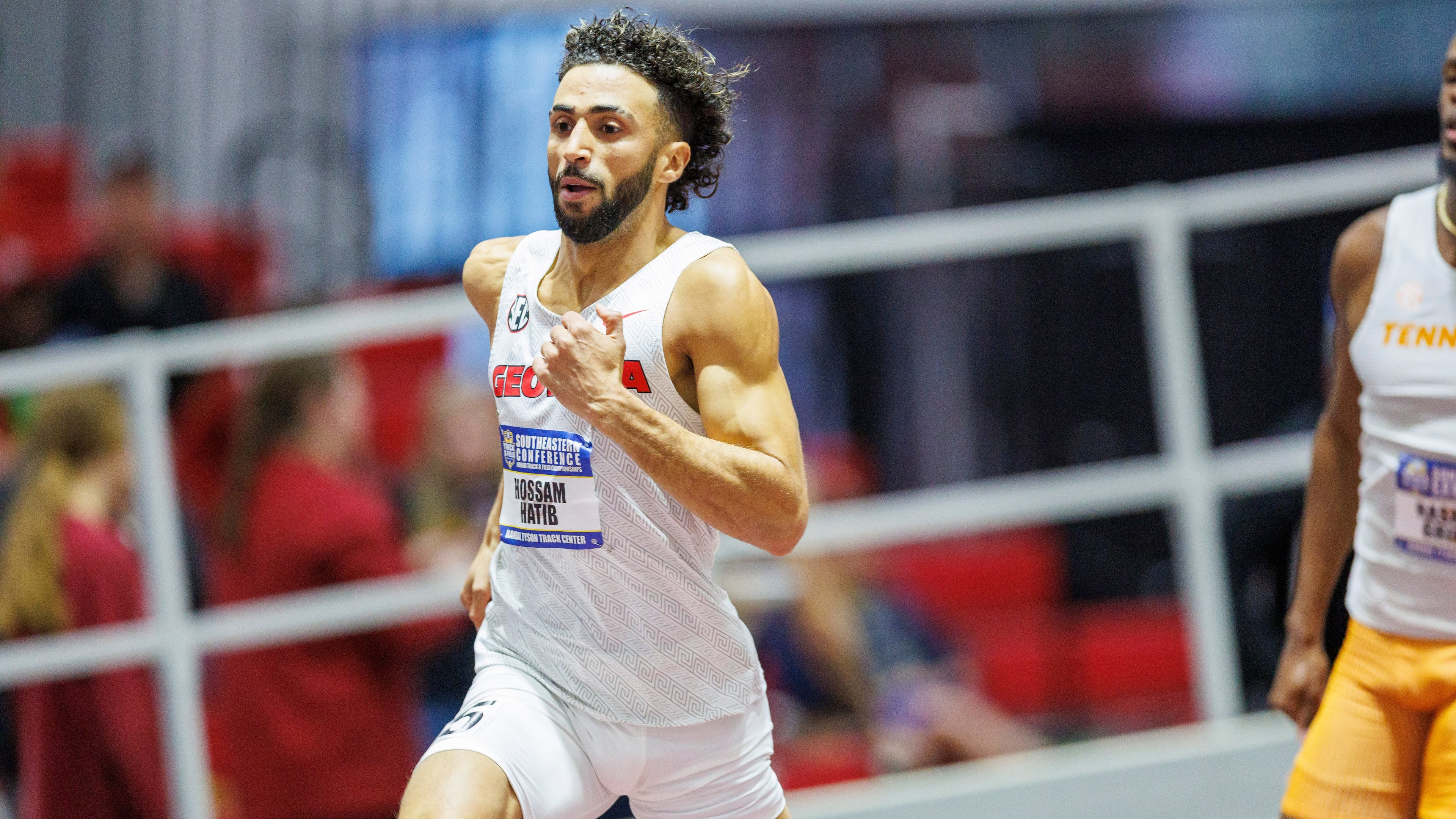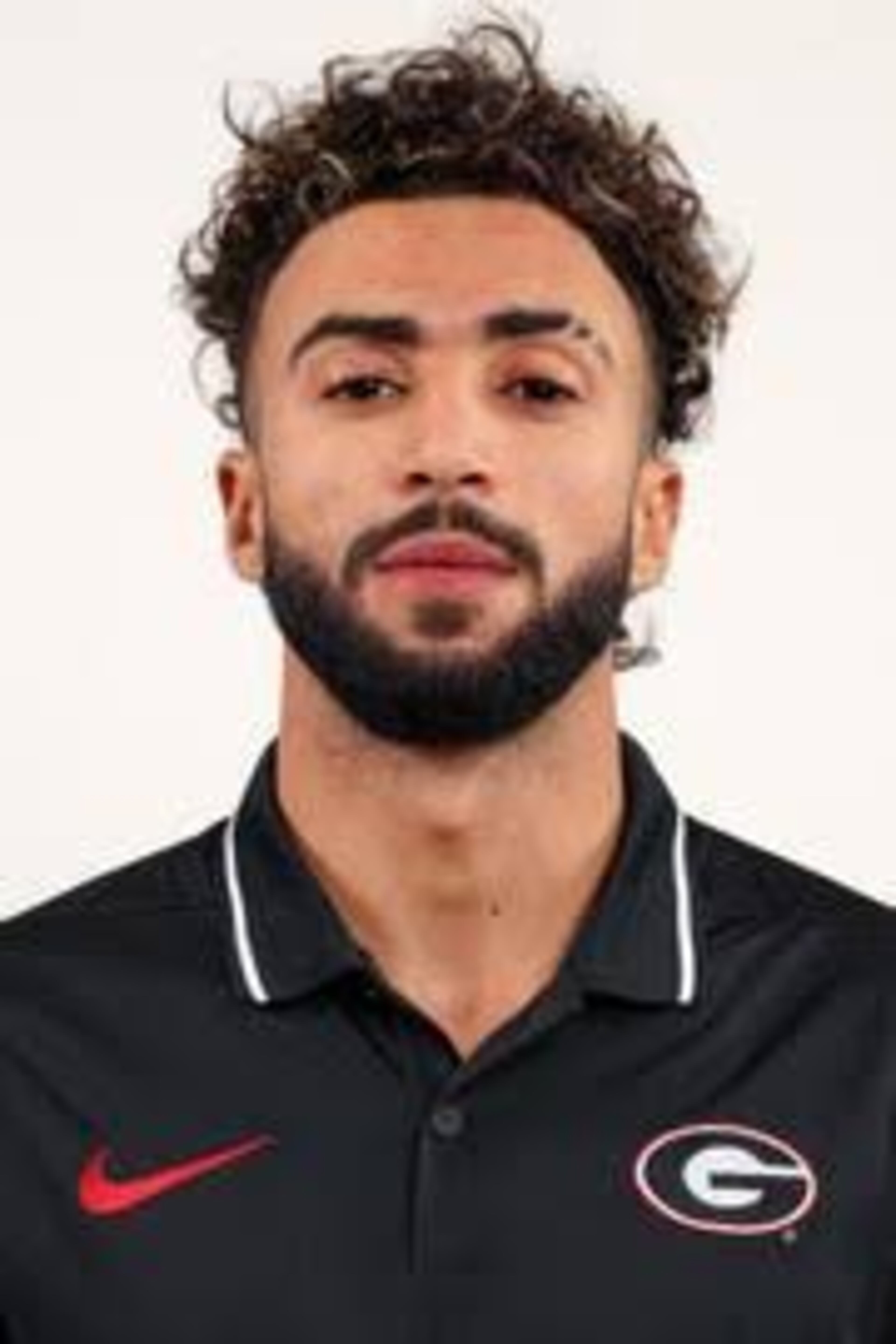UGA sprinter has chance to make Moroccan Olympic team

In high school, Georgia sprinter Hossam Hatib competed in Mixed Martial Arts fighting. He has scars on the bridge of his nose and four fake teeth, permanent marks from that passion. But when he ran an impressive time in the 80-meter dash in gym class, his gym teacher pointed him in a different direction.
Now, Hatib aims to qualify for this summer’s Paris Olympic Games – in only his fourth year of competitive running.
He could become one of the few Olympic sprinters to represent his home country of Morocco. He set Morocco’s national 400-meter indoor record in February with a time of 46.44 seconds.
Sprinters must run faster than 45 seconds in the 400 to be eligible to race in the 2024 Paris Olympics. His fastest time this outdoor season is 45.74.
“I think that’s the easiest part,” Hatib said of meeting the Olympic standard, “because I know I’m in the best 400 program in the country.”
His next chance will come at the Southeastern Conference outdoor championships, which start Thursday in Gainesville, Florida. The NCAA outdoors are June 5-8.

At UGA, Hatib trains alongside Christopher Morales Williams, a sophomore sprinter from Ontario, Canada, who set a world-best in the SEC indoor 400 finals in February, running a 44.49.
“We have the same mindset when we’re training, we’re running through the line,” Morales Williams said. “It’s good to have someone to push me when I get tired, and I push him when he gets tired.”
Beginning in 2020, Hatib would travel 45 minutes to the track and practice with the Achbal Marrakech track club in Marrakech, Morocco. In a country whose running tradition is rooted in distance events, he had only two teammates. Of the 38 Moroccan runners that competed at the last two Olympics, just one competed in a sprinting event.
“Morocco is not a sprinter country,” Hatib said he was told when he first started training in the 400.
“I was like ‘No, that’s the event that I want, and it’s the event that I’m going to achieve my dreams in,’” he said.
Hatib connected with fellow Moroccan runner Mehdi Yanouri on Instagram, sending Yanouri his times through direct messages. Yanouri, a distance runner for South Plains College in Levelland, Texas, spoke with assistant coach Wes Miller after seeing Hatib’s strong times.
South Plains offered Hatib an athletic scholarship. He committed and ran with Yanouri for a year, and the two bonded over their Arabic culture.
“I was translating for Hossam in Arabic, because his first couple days, he didn’t understand some of the workouts and had to get adjusted to everything. But he’s a quick learner, so in a week or two he was already catching on,” Yanouri said.
Knowing someone who spoke Arabic made everything easier for Hatib because he did not start studying English until he arrived at South Plains. English is the fourth language in Morocco, after Moroccan Arabic, French and Berber.
Yanouri transferred to Oklahoma State University for the 2023 indoor season, and Hatib transferred to Georgia a year later.
While at South Plains, Hatib helped lead the Texans to the 2023 NJCAA outdoor championship, their eighth title in 10 seasons. He won the 4x400-meter relay and the 600-meter race.
Hatib had offers from LSU, Texas and Alabama but had not considered running for the Bulldogs until a friend pitched it to him. When he looked for a contact, he noticed the name of an assistant coach was Arabic. This intrigued Hatib and he reached out to sprints coach Karim Abdel Wahab.
“He gave me his number, we’d been talking,” Hatib said. “After a week, I was like, ‘That’s my place.’”
Similar to his relationship with Yanouri at South Plains, it helped to know someone who spoke Arabic in an athletic setting. Hatib had developed his English skills for four semesters at South Plains. Wahab played a large role in being the Arabic representation Hatib looked for and helping him communicate and feel comfortable.
“I shared with him how we treat people in Georgia, that everybody is a first-class citizen here. There is no difference between anybody, and he will be supported and developed at the highest level and we’ll help him get his degree,” Wahab said.
Hatib now sees the possibility of the Olympics on the horizon. When he set the Moroccan national record, he surpassed the previous record of 46.81, set in 1993 by Benyounes Lahlou. Lahlou placed eighth in 800 at the 1996 Olympics.
Hatib will continue on the path to sub-45 in the 400, the event that is fueling his Olympic dreams.
Olivia Noni is a student in the Sports Media Certificate program at the University of Georgia’s Carmical Sports Media Institute.


